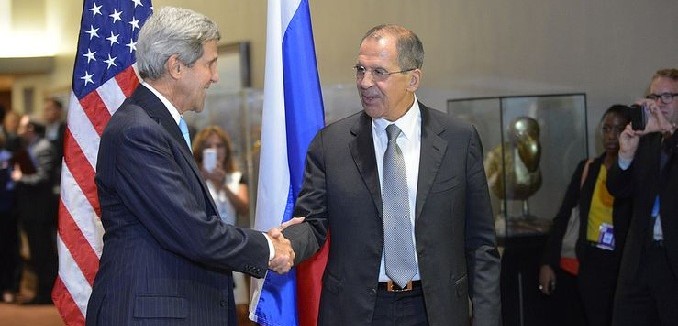The United Nations Security Council (UNSC) seemed set Friday night to adopt a resolution aimed at dismantling Syria’s vast arsenal of chemical weapons. For weeks the UNSC’s Western nations – the United States, Britain, and France – had been demanding that the measure include some means of automatic enforcement if Syria fails to comply. Russia had been demanding the opposite, and the result had been repeated deadlock.
The problem was solved by the West dropping its demands for a so-called Chapter 7 mandate. Any future action against Damascus will now require the UNSC to pass another resolution, which would in turn be subject to another round of Russian or Chinese veto threats.
Russian Deputy Foreign Minister Sergei Ryabkov, according to Reuters, took a victory lap:
A major sticking point had been Russia’s opposition to writing the resolution under Chapter 7 of the U.N. charter, which covers its authority to enforce its decisions with measures such as sanctions or military force… “No concessions have been made,” Ryabkov told Voice of Russia radio. “The main thing is that the automatic use of Chapter 7 has been ruled out.”
So did Syrian lawmaker Issam Khalil:
Issam Khalil told The Associated Press on Friday the U.S. failed to “impose its will” and have the draft invoke Chapter 7 of the U.N. Charter. Khalil says the text is “more similar” to the original Russian initiative that Syria had already accepted. The draft agreed on by five permanent Security Council members Thursday will include two legally binding demands – that Syria abandon its chemical stockpile and allow unfettered access to chemical weapons experts.
Analysts have expressed concerns that Syria’s 1,000 metric tons of chemical agents and precursors cannot be located, seized, moved, and dismantled under the current lawless conditions that reign in parts of war-torn Syria.
President Barack Obama today hailed a draft of the resolution as a “potentially huge victory for the international community.”




